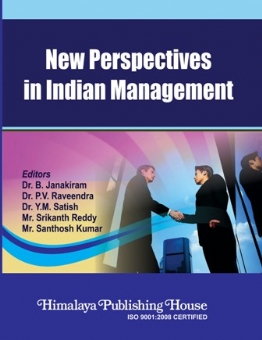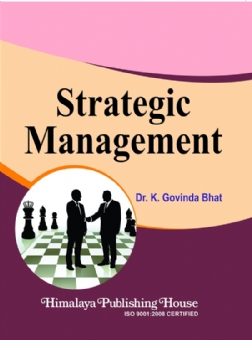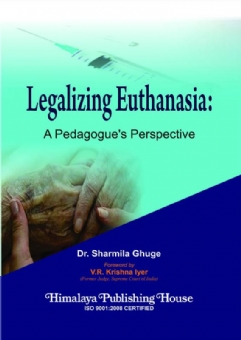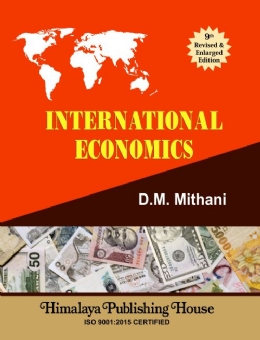“Perform your duty wholeheartedly. Thy not expect the results. Enjoy the work by doing it and hen the Western world is learning from our Bhagavad Gita, we are looking at them for learning without focusing on what we have. The employees who are not that educated achieved six sigma quality in Bombay Dubbawalas. In Shri Mahila Griha Udyog Lijjat Papad, Rs 400 crore turnover was possible without even a production unit and with only women members. These are some of the examples to know better about the success of Indian management practices. This National Conference aims at deliberating on evolving management practices in the Indian context in the areas of finance, marketing and human resources.
The following are the ten principles of one of the Indian companies. They do not call their company as organization but as Ashrama.
The following are the ten principles of one of the Indian companies. They do not call their company as organization but as Ashrama.
– The purpose of business is creation of wealth (for the nation)
– Business and ethics are a perfect match
– Excellence and spirituality are related
– Every customer is a “good paymaster” (provided you do not extend open credit facility)
– Every government officer is honest (provided you are committed to clean business)
– Profit includes income tax
– The management system makes money, products don’t
– Employees should earn wages and not be paid
– Corruption adds cost and reduces quality
– Suppliers, society, and nature are not cows to be milked
In an ashrama, you do not supervise the devotees. You have some guidelines for them and leave the rest to the devotees. You know that they will work from their heart, from their intrinsic desire. In this place, effort is on to see that people bring out their intrinsic desire to work and put in the efforts according to the requirements of the job. Here, they work silently, peacefully, and without any stress. There is no supervision, no policing. People enjoy working, as in a pilgrimage and this organization is called an ashram because employees are committed, empowered and no supervision is done and everybody work by himself according to the needs.
Here are some highlights of this company
– They did not increase the price of the product for the last 10 years
– 100% bonus for the last 5 years
– No marketing department even though they export their products even to China
– No security personal and no supervision
– Created a concept of factory in factory
This is happening in India. To be specific, this company exists in Karnataka, very near to Belgaum. The company name is “Polyhydrons Private Limited”. This conference is organized to revisit such Indian management practices.
Many authors from academia and industry have contributed papers including “Micro Finance and Rural Banking”, “Financial Inclusion – The Sine Qua Non for Progress”, “A Study on Effects of CRR and SLR Rate of RBI in the Bangalore City Co-operative Bank Limited”, “Customer Perception on Retail Banking” and “Bancassurance in India: A Decade’s Journey”, to know more about Indian banking and finance.
Contents –
Theme 1: Finance
1 A Study on Effects of CRR and SLR Rates of Reserve Bank of India in the Bangalore City Co-operative Bank Ltd. — Prof. Naveen N.
2 Interest Rates and Bank Stock Returns – An Analysis from Bank Nifty — C. Prabhavathi
3 Independent Directors of Indian IT Firms and Financial Valuations: An Empirical Study of IT Firms Listed in BSE 200 Index — Dr. M.D. Saibaba & Dr. K. Tharaka Rami Reddy
4 A Study on Assets and Liability Management with Reference to Vijaya Bank, Bangalore — A. Mahalakshmi
5 Customer Perception on Retail Banking – An Analytical Study — Latha K.
6 Micro Finance and Rural Banking — P.V. Chandrika & K. Prabhakara
7 Financial Inclusion – The Sine Qua Non for Progress (A Study in the Indian Context) — Prof. Sai Manohar S.
8 Risk Management Practices in Indian Banking Industry — D. Lakshmi Prabha & Dr. M.V. Subha
9 Market Efficiency-based Country Risk Analysis: An Emerging Risk Management Practice in Foreign Portfolio Investment Management — Kiran Kumar K.V. & Kantesha Sanningammanavara
10 Bancassuarance in India: A Decade’s Journey — Dr. Lokanandha Reddy Irala & Dr. N. Rooplatha
11 Some Aspects of P-Notes and FIIs in Indian Stock Market — Dr. P. Subramanyam
12 Financial Innovation and Regulation — Siddhartha Kumar Tiwari & Ravinder Yadav
13 The Empire Strikes Back: Whether Gold Will Matter in 2014 — Prof. Indira C.M. & Dr. Gajendra Naidu
14 A Study of Financial Inclusion in Rural India – The Challenges, Progress and the Way Forward — Mr. Neelakanta P. & Dr. Gajendra Naidu
15 A Study on Evaluation and Analysis of Selected Equity Mutual Funds with Special Reference to UTI Asset Management Company, Bangalore — Ms. Rupashree R.
16 Analyzing the Determinants of Gold Price in India — Mr. Arun Kumar D.C. & Dr. P.V. Raveendra
17 A Comparative Analysis on Different Risk Measures with Respect to BSE Sensex — M. Nagendra & Dr. Mohammed Arif Pasha
18 Comparative Study of New Fund Offerings [NFOs] and Ongoing Funds — Rajashree B. Patagundi & Rajashree C. Bhumannavar
19 Financial Inclusion in Urban Co-operative Banks — B.M. Raja Sekhar, Dr. K.V.S.N. Jawahar Babu & S. Ismail Basha
20 NPA Management in Canara Bank — Dr. Y.M. Satish & Mohsin M. Shaikh
21 Financial and Non-financial Risk Assessment Model for Software Companies — Dr. B. Jankiram, Prof. G. Vijaya Kumar & Vijay Shankar K.
22 A Study on Foreign Institutional Investment and its Impact on Selected Nifty Stocks — Mr. Ajay Yagati & Dr. B. Janakiram
23 A Study on Non-performing Assets in Karnataka Bank Ltd. — Mr. Lavanith J.S. & Dr. Y.M. Satish
24 Non Performing Asset Management in a Public Sector Bank — Prof. Manjula Satish, Dr. Y.M. Satish & Dr. B. Janakiram
Theme 2: Human Resources
25 Organizational Role Efficacy and Self-mastery Regulation in Public Sector – A study with Reference to KPTCL, Bangalore — Dr. B. Janakiram & Ms. Keerthana G.M.
26 Beyond Managing – Talent Management in Retail: A Critical View on Inclusiveness — Dr. B. Rose Kavitha
27 Stress Management and Balancing of Life — Prof. Eranna G.
28 Diversity Management Practices in Indian Context — Mrs. Namrata Kapur & Dr. B. Janakiram
29 Employee Job Satisfaction – An Empirical Study — Dr. T. Sobharani & Mrs. P. Mrudula
30 “An Assessment of QWL” at IT Companies, Bangalore — Prof. M. Haritha, Prof. Ravi V. & Prof. Mamatha
31 Antecedents of Performance Appraisals Effectiveness (PAE) in BPO Industry — Dr. R. Jayanthi
32 Stress Management and Work-life Balance — Prof. Sree Latha D.R.
33 Effects of Locus of Control in Succession Planning in Manufacturing Sector – A Study of BEML Ltd., Mysore — Dr. B. Janakiram & Ms. Aishwarya A.
34 A Study on the Transformation of Employee-friendly to Family-friendly HR Practices – Work-life Balance to Work-life Blend — Prof. Devpriya Dey
35 Employee Engagement in House Construction and Infrastructure Industry — Dr. Guru Basava Aradhya & Prof. Mohdzan Ullabaddin
36 Employee Retention Management – “Talent Acquisition and Retention Strategies in IT Companies” — Prof. Pradeep S., Prof. Raghavendra R. & Dr. O. Ravisankar
37 Emerging HRM Interventions for Work-life Balance: An Empirical Study of Working Mothers — Prof. Sahana Maiya & Dr. M.M. Bagali
38 Faculty Stress Management and Work-life Balance: “Stress Management Strategies for Academic Leaders and Faculty to Achieve a Reasonable Balance of Work and Life” — Prof. Mr. Sreedhar N.
39 A Study on Employee Engagement with Special Reference to LIC of India, Tarikere, Karnataka. — Ms. Rashmi S.B. & Dr. A.M. Kadakol
40 A Study on Training Needs Identification in Automobile Financing Industry – A Study at Toyota Financial Services India — Dr. B. Janakiram and Ms Aishwarya. M.
41 HR Profession: In Search of Recognition and Six Sigma Intervention — Dr. Nagaraj Shenoy
42 A Study on Rewards and Recognition Programme and its Impact on Employee Motivation — Dr. B. Janakiram, Prof. Santhosh Kumar S. & Ms. Sahana Velur
43 A Study on Quality of Work Life with Reference to ITI Ltd., Bangalore —Prof. Santhosh Kumar S., Prof. G. Vijaya Kumar & Ms. Shirley Michael A.
44 A Study on Training and Development in Selected IT Industries — Prof. Deepak Singh M.C.
45 A Study on Training and Development Practices in SMEs — Dr. Ananthapadhmanabha Achar & Dr. Prathima Acharya
Theme 3: Marketing
46 Perception of Management Students in the Hubli City towards Online Shopping Sites — Prof. Amit N. Angadi and Dr. Rajendraprasad K. Hanagandi
47 Customer Relationship Management in e-Business — Ms. Abhilasha Tiwari & Ms. Pratima Singh
48 Customer Profile and Shopping Experience at Auchan — Prof. N. Srikanth Reddy & Mr. Kislaya Kumar
49 Distributor Perception towards Shree Renuka Sugars Ltd. — Prof. N. Srikanth Reddy & Mr. Mallikarjun P. Wali
50 Customer Satisfaction Towards Garuda Maruti Pvt. Ltd. Services — Prof. N. Srikanth Reddy & Mr. Nithin Mathew Thomas
51 Service Quality at B.M. Patil Medical College and Research Centre — Prof. N. Srikanth Reddy & Lingaraj K. Desai
52 Customer Satisfaction at SS Packaging — N. Srikanth Reddy & Naveen Timmayya Bant
53 FDI in Indian Retail Industry: Challenges Ahead — Vinitha Priyadarshini
54 Customer Relationship Management (CRM) as a Sustainable Business Practice in Indian Automobile Manufacturing Sector — Prof. Raghavendra A.N. & Dr. Nijaguna G.
55 Retail Innovations in Rural India – An Emerging Trend — Dr. A. Kumudha & Dr. Rizwana M.
56 Marketing Home Loans through Festivals: An Effective Promotional Tool — Prof. Swati Basu Ghose & Dr. P.V. Raveendra
57 Retail Store Taxonomy — Prof. N. Srikanth Reddy & Dr. P.V. Raveendra
58 A Study on Consumer Buying Behaviour in Hypermarkets and Supermarkets in India — Prof. Anitha G.H.
59 Influence of Consumer Demographics on Online Booking of Train Tickets — Prof. Chakravarthi Koundinya & Dr. P.V. Raveendra
60 Types and Impact of Tourism on Indian Economy — Prof. Lalita Kumari
61 A Study on Emerging Trends of Tourism and its Problems with Reference to Infrastructure Facilities in Karnataka — Prof. Santhosh Kumar S. & Dr. P.V. Raveendra
62 Tourism and Hospitality Marketing — B.M. Raja Sekhar, Dr. K.V.S.N. Jawahar Babu & S. Ismail Basha
63 Role of Digital Marketing on Hospitality and Tourism Industry with Special Reference to Karnataka State — Prof. Santhosh Kumar S., Prof. Lakshmi V. & Ms. Vidyabai S. Pawar
64 Adoption and Implementation of e-CRM by Small and Medium Enterprises (SMEs) in India — Prof. Ajatashatru Samal, Dr. N. Sandhya, Dr. B.R. Dwaraki Ramanna, Dr. Rejimon Thomas & Prof. Murali S.
65 WhatsApp – A New Page in Promotion Mix — B. Siva Naga Devi and Prof. B. Sridhar Reddy (TPO)
66 A Perceptual Study on the Constraints in Adoption of e-Commerce Practices among the Farmers of Composite Coimbatore — Poongodi B.
Theme 4: General
67 Analysis of Strategies that Promote the Development of BRICs — José G. Vargas-Hernández & C.P. Shaila Lizzully Jurado Díaz
68 Linkages and Partnership Required between Academics and Industry to Bring the Reforms in Management Education — Prof. Santhosh Kumar S. & Dr. P.V. Raveendra
69 Business Ethics — Prof. Gayathri Shetty
70 The Role of Informal Economy and the Ethics in Managing the Human Resource and Business — Dr. R. Seenivasan
71 Stakeholders’ Perspectives of Food Security Measures with Special Reference to Anna Bhagya Yojana (Karnataka Free of Hunger) – An Empirical Study in Mysore District — Prof. Vinay S.
72 Internationalization Strategy: Outward Foreign Direct Investments by Indian Firms — Leena Nair & Dr. V. Basil Hans 357 – 362 73 A Study on Problems of Entrepreneurs and Venture Capitalists in Bangalore — Dr. P.V. Raveendra
Theme 5: Indian Innovative Practices
74 Social Innovations That Can Change Indian Economy — Prof. Rajani Korah







